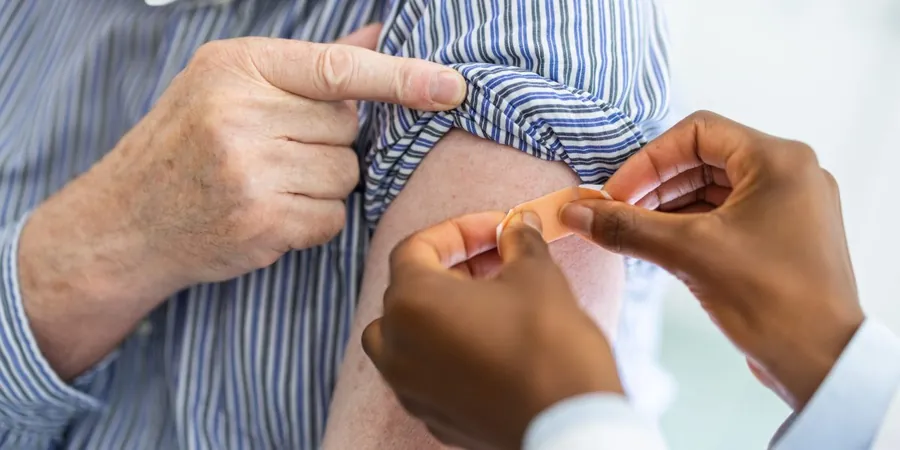
Breakthrough RSV Vaccines for Adults Aged 60 and Older: A New Hope Amid Vaccine Skepticism
2024-10-04
Breakthrough RSV Vaccines for Adults Aged 60 and Older: A New Hope Amid Vaccine Skepticism
In recent years, COVID-19 has overshadowed many public health issues, including the critical development of the first respiratory syncytial virus (RSV) vaccine. Dr. Sujata Ambardar, an infectious disease specialist at Inova Fairfax Hospital, emphasizes that while awareness around RSV is increasing, many remain oblivious to its risks compared to COVID and flu.
As of now, the U.S. has three newly approved RSV vaccines aimed at protecting adults aged 60 and over. Just 18 months ago, however, no such vaccine existed. The first RSV vaccine, GSK’s Arexvy, gained FDA approval on May 3, 2023, marking a significant milestone in preventative healthcare. The FDA further recognized the systemic risk RSV poses, especially for older adults, by approving Pfizer’s Abrysvo on May 31, 2023, and Moderna’s mResvia exactly one year later.
Despite these advancements, a troubling statistic from the CDC indicates that as of spring 2024, less than 25% of adults over 60 had received an RSV vaccine. Vaccine marketing appears to be an uphill battle, especially with the introduction of new doses in a pandemic-fatigued public.
Shocking Survey Findings: Only 38% of Older Adults Plan to Get the RSV Vaccine
According to a recent survey by the National Foundation for Infectious Diseases (NFID), only 38% of eligible older adults plan to receive an RSV vaccine during the 2024-2025 respiratory virus season. Alarmingly, 44% of respondents remained undecided or indicated they would not participate in vaccination efforts, citing:
- Concerns about vaccine side effects: 45% - Fears of falling ill due to the vaccine: 38% - Distrust of vaccines in general: 38% - Lack of doctor recommendation: 24%.
Dr. Robert Hopkins Jr. of NFID notes that a general decline in vaccine confidence, intensified by the quick rollouts seen during the pandemic and the newfound nature of RSV vaccinations, contributes to rising hesitancy.
On the flip side, those inclined to get vaccinated noted compelling reasons for doing so, including:
- A desire to self-protect (72%) - Aiming to avoid severe complications such as hospitalization or death (61%) - A recommendation from their healthcare provider (59%) - Protecting family members from passing on the virus (58%).
Understanding RSV: A Few Facts You Should Know
RSV is more than just a pediatric concern. This respiratory virus infects the lungs, nose, and throat, usually peaking from December to January in colder regions but can occur year-round in warmer climates. Common symptoms include chilled-like signs, such as a cough, runny nose, or fever, appearing four to six days after infection.
The CDC warns that while many people recover at home, infants and elderly adults—especially those with chronic health conditions—face a heightened risk of severe illness and hospitalization. Each year, RSV accounts for 6,000 to 10,000 fatalities among older adults in the U.S. alone.
Who Should Get Vaccinated?
To combat these alarming statistics, the Centers for Disease Control and Prevention (CDC) has set clear guidelines for RSV vaccination:
1. All individuals aged 75 and older. 2. Adults aged 60-74 with increased risks, including those with chronic conditions or living in nursing facilities.
While the CDC hasn't broadly recommended vaccination for anyone under 60, the FDA has approved GSK's Arexvy for adults between 50-59 who are at high risk for lower respiratory tract infection.
A Promise for the Future
The newly developed RSV vaccines offer a promising avenue for safeguarding older adults, yet experts like Dr. Hopkins anticipate that further study and data may lead to expanded recommendations for broader populations.
As RSV continues to lurk in the shadows of public awareness, ensuring that older adults receive timely vaccinations could save thousands of lives. Don’t let this opportunity pass you by. Speak to your doctor today about how you can protect yourself and your loved ones from RSV this upcoming season!

 Brasil (PT)
Brasil (PT)
 Canada (EN)
Canada (EN)
 Chile (ES)
Chile (ES)
 España (ES)
España (ES)
 France (FR)
France (FR)
 Hong Kong (EN)
Hong Kong (EN)
 Italia (IT)
Italia (IT)
 日本 (JA)
日本 (JA)
 Magyarország (HU)
Magyarország (HU)
 Norge (NO)
Norge (NO)
 Polska (PL)
Polska (PL)
 Schweiz (DE)
Schweiz (DE)
 Singapore (EN)
Singapore (EN)
 Sverige (SV)
Sverige (SV)
 Suomi (FI)
Suomi (FI)
 Türkiye (TR)
Türkiye (TR)